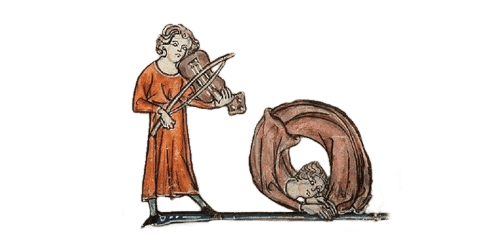I had a great time this past weekend playing at the Indianapolis Early Music Festival. Friday night, was a performance with the Baltimore Consort. We played a program of English Broken Consort music - the music that the BC was created to play.
Saturday morning, we had a children's show with a great turnout of youngsters and their parents. It was a beautiful thing to see the kids touching, questioning and sometimes even trying out our instruments. And on Sunday evening I played the Vivaldi concertos and trio sonatas for lute and strings with the Indianapolis Early Music Festival. Here's what the Indianapolis Star had to say about the two evening concerts:
http://www.indystar.com/article/20110709/ENTERTAINMENT/107090333/Back-Elizabethan-times
http://wap.indystar.com/entertainment/article?a=2011107110338&f=1247
THE BUZZ: Lutenist is a star in salute to Vivaldi
by Jay Harvey
It's a long way from "Wipeout" by the Surfaris to baroque lute music, but Ronn McFarlane seems capable of catching the big wave and riding the crest.
That long ago-ago instrumental pop hit with its churning guitars is what launched McFarlane's interest in music, according to his program biography.
Antonio Vivaldi is a chart-topper among baroque composers. The imperishable slow movement from his Concerto in D for Lute and Strings has added gloss to weddings and TV ads, and every other month, it seems, a star violinist joins a string orchestra to record "The Four Seasons."
McFarlane presented an enchantingly ornamented line in that D major concerto's Largo movement against a cushion of sustained, vibratoless string tone. The outer movements caught the verve and lyrical allure of the best Vivaldi.
The lutenist has been featured in both Indianapolis Early Music Festival programs this weekend. On Friday, McFarlane appeared with the Baltimore Consort, his home band, and on Sunday night with the Indianapolis Baroque Orchestra. The local musicians were supplemented by the Baltimore Consort's Mark Cudek, playing guitar this time around, and William Simms, a master of the ungainly theorbo.
"Viva Vivaldi" was the title of Sunday's concert, and its hip-hip-hooray implication was well-served by the music's variety. At the small end, J.S. Bach's adaptation of a Vivaldi concerto featured a three-man ensemble, with the harpsichordist Thomas Gerber deservingly showcased.
Three short pieces by pre-Vivaldi Italian composers also brought forth just three players, principally to further spotlight McFarlane, though a pert "Ciacona" by Alessandro Piccinini was launched magisterially by Simm's gently booming theorbo.
The restrained but warmly phrased playing of Alison Guest Edberg had been evident from the top of the program, especially in the main slow movement of Concerto No. 11 in D minor. Her poise and well-knit lyricism with the baroque violin carried over to the solo role she filled in another D minor concerto, this one for the mellow, resonant viola d'amore. The imitative passages and conversational byplay between that solo instrument and the partnered lute were among the concert's peak delights.
Review: Baltimore Consort brings merriment of 17th century alive
Music was a haven from the turbulence of Shakespeare's time, and its forms were short and accessible to soothe a people otherwise gripped by fear, ambition and intrigue.
The Baltimore Consort connected readily with its Early Music Festival audience Friday in a program of songs and dances drawn mostly from three decades surrounding the turn of the 17th century.
Mark Cudek, the festival's artistic director, has counted this as his home ensemble for 31 years, and its stability was reflected here in the performance's blend of precision and relaxed rapport.
Instrumental pieces formed the bulk of the program, grouped in compatible sets of three that offered the pleasures of the "broken consort," in which bowed strings, plucked or strummed strings, and flutes were enjoyed in combination.
The Baltimore Consort's showcased players were flutist Mindy Rosenfeld-Hedges and lutenist Ronn McFarlane -- adept musicians whose almost nonchalant mastery was an unfailing source of delight (to them as well as to the audience).
Several lively pieces ended with a variation or two spotlighting Rosenfeld-Hedges duetting with recorder player Larry Lipkis. With Cudek strumming the metal-strung cittern and William Simms the bandora (essentially a larger cittern), the rhythmic pulse could get intense, especially when McFarlane joined in. Near the end of Jean d'Estree's "Les Buffons," a "yee-HAH!" might almost have been appropriate.
The composer most represented Friday was John Dowland, a contemporary of Shakespeare whose volatile personality suggests he would have been at home in the plays. But his true distinction was to have produced so compelling a variety of lute pieces and songs that their appeal up to the present day includes advocacy by Sting, who's recorded a Dowland CD.
One of them, "Come Again, Sweet Love Doth Now Invite," was guest soprano Danielle Svonavec's initial offering Friday night. Her slightly wooden, carefully enunciated performance did not nurture any faith that Elizabethan warmth and flair were natural to her. But this impression was dispelled by her ardor in "Take, O Take Those Lips Away" and friskiness in "The Carman's Whistle." The gradually more elaborate lines of the suggestive "The Dark Is My Delight" suited her well-schooled gift for apt expression.
Encores were a couple of ballads, one featuring Svonavec a cappella ("Go From My Window") and the other, this superb Renaissance band.

